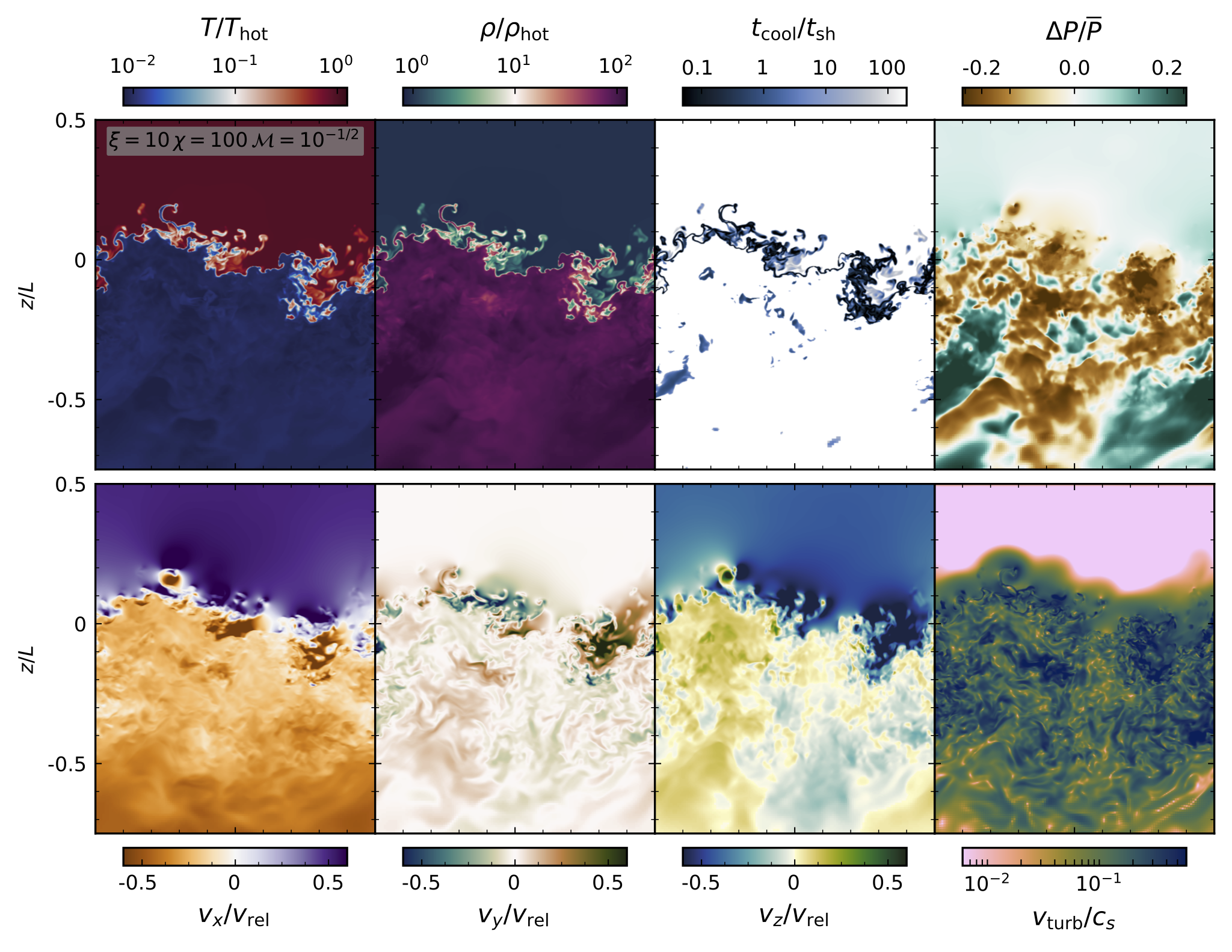Multiphase Gas and the Fractal Nature of Radiative Turbulent Mixing Layers
Published in ApJ, 2020
Recommended citation: Fielding, D., Ostriker, E., Bryan, G., and Jermyn, A. (2020). "Multiphase Gas and the Fractal Nature of Radiative Turbulent Mixing Layers." ApJ. 894, L24. May 2020. pdf version available here
A common situation in galactic and intergalactic gas involves cold dense gas in motion relative to hot diffuse gas. Kelvin-Helmholtz instability creates a turbulent mixing layer and populates the intermediate-temperature phase, which often cools rapidly. The energy lost to cooling is balanced by the advection of hot high enthalpy gas into the mixing layer, resulting in growth and acceleration of the cold phase. This process may play a major role in determining the interstellar medium and circumgalactic medium phase structure, and accelerating cold gas in galactic winds and cosmic filaments. Cooling in these mixing layers occurs in a thin corrugated sheet, which we argue has an area with fractal dimension D=5/2 and a thickness that adjusts to match the hot phase mixing time to the cooling time. These cooling sheet properties form the basis of a new model for how the cooling rate and hot gas inflow velocity depend on the size L, cooling time tcool, relative velocity vrel, and density contrast ρcold/ρhot of the system. Entrainment is expected to be enhanced in environments with short tcool, large vrel, and large ρcold/ρhot. Using a large suite of three dimensional hydrodynamic simulations, we demonstrate that this fractal cooling layer model accurately captures the energetics and evolution of turbulent interfaces and can therefore be used as a foundation for understanding multiphase mixing with strong radiative cooling.
Press
AAS Nova featured this work in it’s Research Highlights section, which can be found here
Movies
Watch movies of the evolving fractal mixing layers

Drummond Fielding, Eve Ostriker, Greg Bryan, and Adam Jermyn. Multiphase Gas and the Fractal Nature of Radiative Turbulent Mixing Layers. ApJ, 894, L24, May 2020
